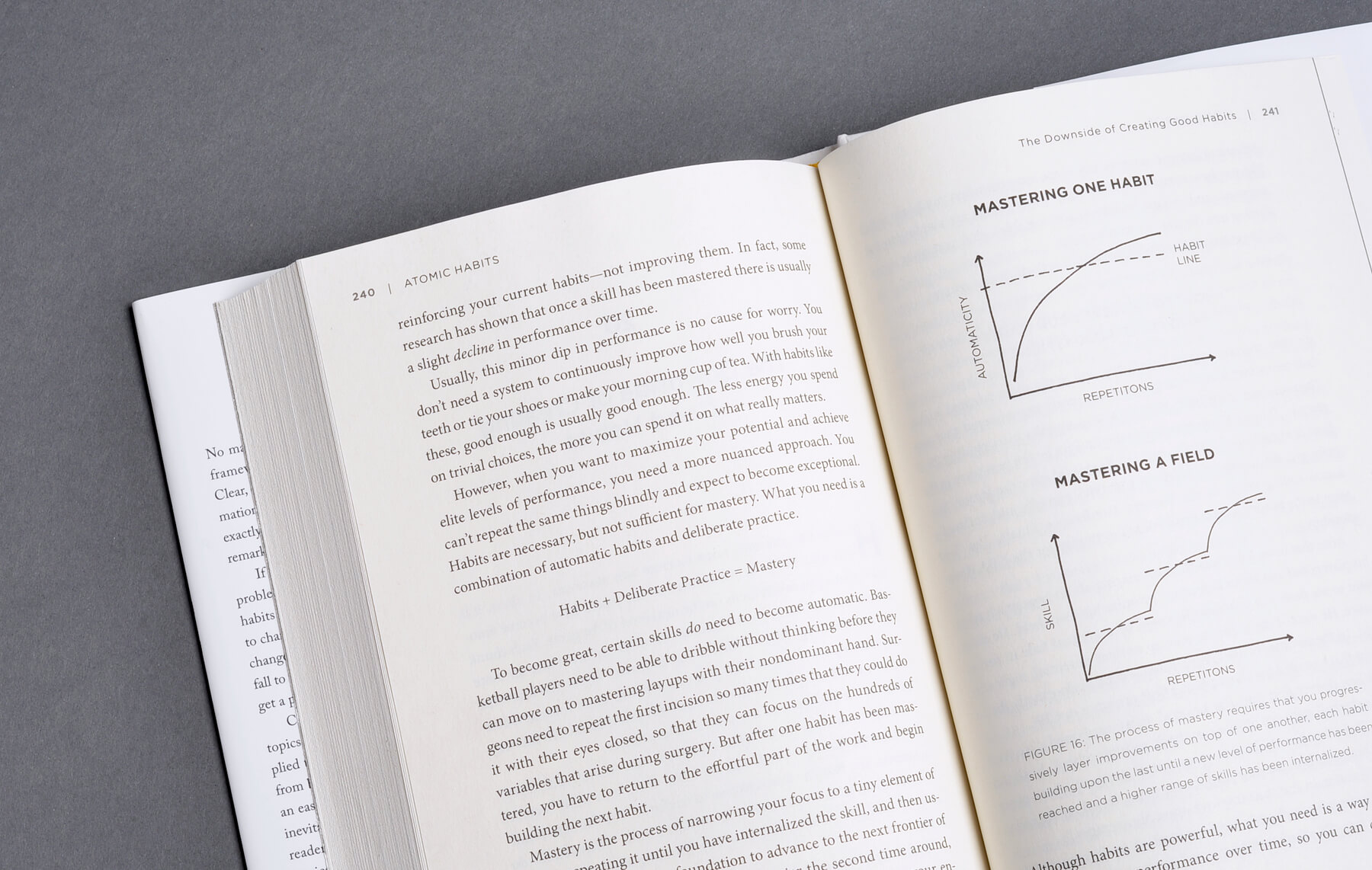

I cannot tell you at this point whether it will or will not help me do either. The point of the book is to help us actually do the thing: to build better habits and break rubbish ones. The point of the book is not to make James Clear a significant amount of money (well maybe that too) or give his readers a few hours of food for thought (though definitely that too). I have read it and am in the process of saying what I think of it, but there is a sense in which what I think of it right this minute is pretty meaningless. Reviewing a self-help book is always a difficult thing to do, because the requirement is that you read the book and then say what you think of it. As with all things atom-splitting, you do however need to be in precise control. Splitting the atom produces massive consequences breaking an atomic habit (the theory goes) can have a similar impact on our lives. Firstly, they are minute in scale, invisible to the naked eye, we often don't even know they're habits. Clear's approach to building good habits and breaking bad ones is focussed entirely around how we make choices.īut let's backtrack: why Atomic Habits in the title? Clear's explanation is that it is to encapsulate two fundamental things about our habits. The problem with the things we choose is the very fact that we have that choice.

Yep, definitely all of the images that the word produces are not those I want to be associated with. This is rendered in the book as 'Make it attractive' in terms of habit-forming, or conversely for habit breaking make it unattractive. Hidden in there is one of the principles that underlies Clear's approach to habit-forming and habit-breaking. Perhaps that is because with the other things our only options are 'sort it' or 'stagnate'…and the latter really isn't appealing, so we look to ways to sort it. Surprisingly, some of the things we choose to do are actually the hardest. One thing I have learned over the last nine to ten months is that the voluntary or otherwise nature of change that we have to deal with is irrelevant when it comes to how well or poorly we manage to do so. It was a conversation about the latter that provoked the response I think I might have the answer: read this! Some things I'm handling with relative composure (if not exact ease) and others are a really hard struggle. Some aspects are purely voluntary changes other aspects were bolts from the black. These small changes will have a revolutionary effect on your career, your relationships, and your life.I've said this before but there are some books that you seek out, some books that you stumble across and some books that drop into your life because you really MUST read them, like, right now! Atomic Habits is in the last category. He uncovers a handful of simple life hacks (the forgotten art of Habit Stacking, the unexpected power of the Two Minute Rule, or the trick to entering the Goldilocks Zone), and delves into cutting-edge psychology and neuroscience to explain why they matter.Īlong the way, he tells inspiring stories of Olympic gold medalists, leading CEOs, and distinguished scientists who have used the science of tiny habits to stay productive, motivated, and happy. In this ground-breaking book, Clears reveals exactly how these minuscule changes can grow into such life-altering outcomes. He knows that real change comes from the compound effect of hundreds of small decisions - doing two push-ups a day, waking up five minutes early, or holding a single short phone call. But world-renowned habits expert James Clear has discovered another way. People think when you want to change your life, you need to think big.

A revolutionary system to get 1% better every day.


 0 kommentar(er)
0 kommentar(er)
